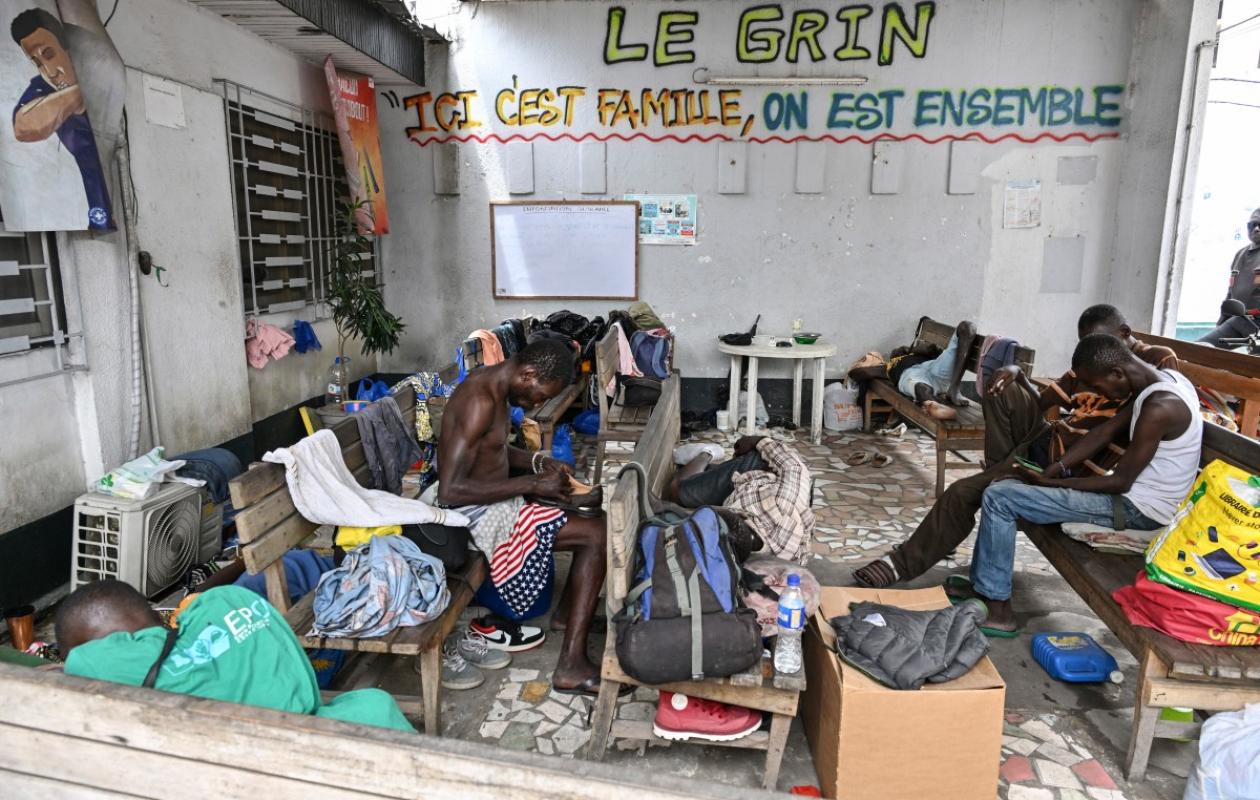
A Abidjan, un centre d'accueil pour sortir de la drogue et des "fumoirs"
In a wealthy neighborhood of Abidjan, you have to go through a small, discreet door to access the Reception, Care and Support Center (CASA), where drug users, who are particularly vulnerable and marginalized in Côte d'Ivoire, meet.
This West African coastal country has in recent years become a transit country for international trafficking of heroin, cocaine and drugs whose use is diverted.
And while there is little official data on consumption, Dr. Fériole Zahoui, an addiction specialist at CASA, estimates that "there are between 30,000 and 40,000 drug users in Abidjan," three to four times more than ten years ago.
Thanks to word of mouth, the center, opened in 2018, gradually became known and now welcomes around twenty users daily who come to rest, wash, but also benefit from appropriate social, medical and psychological support, free of charge.
Because Ivory Coast has not chosen the path of total repression against drug users: a 2022 law reduced sentences for users, from 1 to 3 months in prison instead of 1 to 5 years previously.
Late morning, calm reigns in the CASA rest room: some doze, others chat or watch television. Pushing open the doors, one finds a pharmacy, a laboratory dedicated to screening, consultation rooms, an infirmary…
A truly closed-circuit medical center with the feel of a warm, discreet home so as not to disturb local residents. For many, CASA is, above all, a home, and its community a family they can rely on when addiction has taken everything.
Next to his partner asleep on the floor, Hassan Mohana told AFP that he comes every day to take his methadone treatment, a heroin substitute, but also to rest and shower before starting his night shift.
"It allowed me to find myself, to keep a job, to reintegrate into society," explains the 40-year-old man, who has been attending CASA since it opened.
Heroin and "Gaddafi," a mixture of tramadol and alcohol, popular for its low price (less than one euro per dose), are the main drugs consumed by users who attend the center.
CASA distributes methadone, a substitute that has allowed Mamadou Touré to experience "a second birth," by stopping the heroin he had been using since adolescence.
"For years, I alternated between the smoking room and prison," says the 47-year-old.
Today, he says he has found meaning in his life: he has become a peer educator at the center, a resource person who helps users to get out of their situation in turn.
With her nine-month-old daughter asleep against her chest, Massita Konaté recalls the hell of the smoking rooms where she lived for years.
"People are dying like dogs there, no one comes to get them," says the young mother, whose forearms bear the scars of heroin injections.
At 35, Massita is also on methadone. Although she has found an apartment, she continues to spend her days at CASA to "be with people who understand (her)."
The CASA cannot accommodate all consumers: therefore, raids are carried out in smoking rooms, also called ghettos.
In these makeshift shelters, users smoke crack cocaine, cannabis, inject heroin, and try to survive.
A warm welcome is reserved for the familiar faces of CASA volunteers and employees, who have come to provide prevention, distribute condoms or single-use syringes.
"We don't have the strength, we're weak. But with help, we can change and work," assures David Junior, 34.
"Many people who get sick at the smoking room don't dare come to CASA," explains Anicet Tagnon, head of community activities. "So the center comes to them," he continues.
"There is a major information challenge. Some people don't even know they could have access to methadone," says Dr. Fériole Zahoui.
Since its opening, under the leadership of Médecins du Monde and managed by the NGO Espace Confiance, CASA estimates it has supported more than 3,000 people. Its annual operating costs are approximately €218,000, largely funded by the cooperation agency Expertise France.
A second center based on the same model has opened in San Pedro, in the west of the country, another major port of arrival for international drugs.
Commentaires (0)
Participer à la Discussion
Règles de la communauté :
💡 Astuce : Utilisez des emojis depuis votre téléphone ou le module emoji ci-dessous. Cliquez sur GIF pour ajouter un GIF animé. Collez un lien X/Twitter, TikTok ou Instagram pour l'afficher automatiquement.